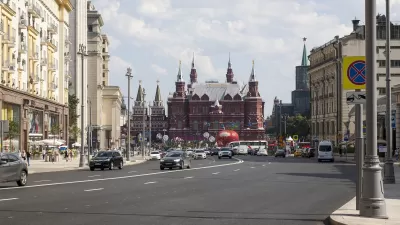Japan was not the only nation to shutter its nuclear power plants after the March 11, 2011 Fukushima earthquake and tsunami. Germany followed suit. Consequently, both nations have seen a dramatic increase in coal burning, thus increasing emissions.
Aaron Wiener writes that in the aftermath of the Fukushima disaster, Germany's greens cheered when the government "shut down half the country's nuclear reactors followed two months later by a pledge to abandon nuclear power within a decade"
The results have been anything but green though.
"To make up for the lost nuclear power, which supplied 22% of Germany's electricity before the phaseout began, the country has increased its reliance on brown coal, a particularly high emitter of carbon dioxide into the atmosphere and a major contributor to global warming. Brown coal now supplies 25% of Germany's electricity, up from 23% a year ago."
Wiener reports that although environmentalists supported the decision to shutter the plants, they've taken issue with how it's been executed.
"We have a government where half of the administration does not agree with the starting point that the phasing-out program was the right thing to do," said Cem Oezdemir, co-chairman of Germany's Green Party. "So what you can see is that the second part after you decided to phase out, that you change your electricity structure and that you have a master plan for energy policy, that never was really agreed upon."
Richard Mathews writes in Global Warming is Real that "after the Fukushima incident, Japan closed almost all of their nuclear facilities to conduct safety checks. It is very unlikely that these nuclear reactors will be restarted."
"Japan's nuclear power used to generate almost one third of the country's power. Presently, only 2 of Japan's 54 reactors are operational, and to make up for the energy shortfall, the country is increasingly turning to fossil fuels." The result is an expected 5% increase in greenhouse gas emissions.
Thanks to David Frink
FULL STORY: Germany's nuclear power phaseout turns off environmentalists

Maui's Vacation Rental Debate Turns Ugly
Verbal attacks, misinformation campaigns and fistfights plague a high-stakes debate to convert thousands of vacation rentals into long-term housing.

Planetizen Federal Action Tracker
A weekly monitor of how Trump’s orders and actions are impacting planners and planning in America.

Chicago’s Ghost Rails
Just beneath the surface of the modern city lie the remnants of its expansive early 20th-century streetcar system.

Bend, Oregon Zoning Reforms Prioritize Small-Scale Housing
The city altered its zoning code to allow multi-family housing and eliminated parking mandates citywide.

Amtrak Cutting Jobs, Funding to High-Speed Rail
The agency plans to cut 10 percent of its workforce and has confirmed it will not fund new high-speed rail projects.

LA Denies Basic Services to Unhoused Residents
The city has repeatedly failed to respond to requests for trash pickup at encampment sites, and eliminated a program that provided mobile showers and toilets.
Urban Design for Planners 1: Software Tools
This six-course series explores essential urban design concepts using open source software and equips planners with the tools they need to participate fully in the urban design process.
Planning for Universal Design
Learn the tools for implementing Universal Design in planning regulations.
planning NEXT
Appalachian Highlands Housing Partners
Mpact (founded as Rail~Volution)
City of Camden Redevelopment Agency
City of Astoria
City of Portland
City of Laramie



























